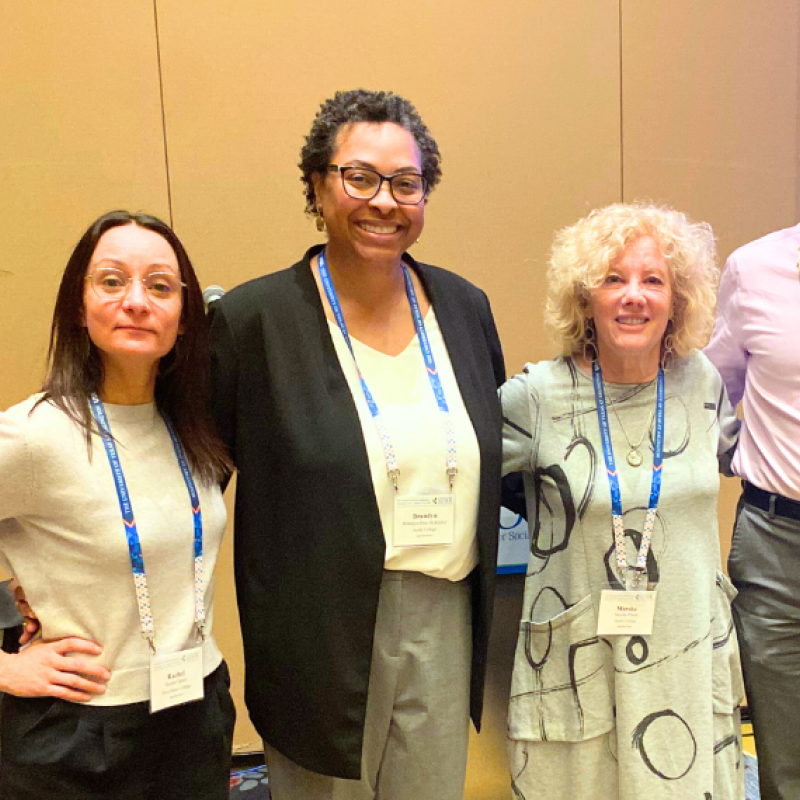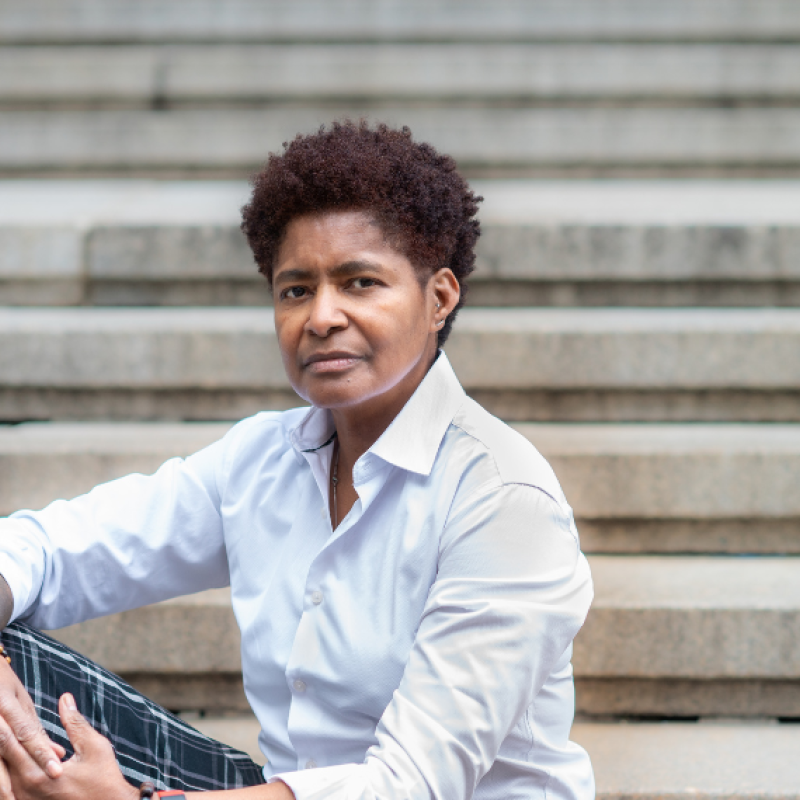As faculty, administrators and students of Smith College School for Social Work, we forcefully condemn acts of racism and urge political leaders to work to unite the country, where all people are struggling to survive COVID-19, and to support any groups or individuals who are being scapegoated or targeted because of this disease.
In the wake of the pandemic there has been a rise in violence and racism against Asian/Asian Americans* living in the US and abroad. Specifically, East/Southeast Asian/American/Pacific Islander (hereafter Asian American/Pacific Islander, or AAPI)** communities have been subjected to harassment, social targeting, physical, and emotional pain. These targeted violences have resulted because of an erroneous linking of the spread of COVID-19 to AAPI communities and have been further exacerbated by the labeling of COVID-19 as “The Chinese virus.” We condemn racist discourses that foment xenophobia and divisiveness.
This tactic predates COVID-19/our current time and has led to some of the most shameful acts in U.S. history. Presidents and politicians have used the racist/xenophobic rhetoric of “Yellow Peril” to justify the Chinese Exclusion Act, incite violence against Chinese railway workers and the incarceration of Japanese Americans in concentration camps during WWII. The term “China Virus” was also used in the shameful period of the “Red Scare” to describe the spread of communism in China and its purported threat to liberal capitalist economies - just to name a few such examples. When a disease is given an ethnic or geographic origin, it inevitably scapegoats and targets innocent people and leads to escalating racialized violence. This is precisely why the World Health Organization explicitly directs leaders to not engage in such naming.
It is not just AAPI communities who have been deeply affected by these entrenched, systemic forms of racist violence; the COVID-19 pandemic is exacerbating historically sedimented disparities and inequalities that Black, Indigenous, and Latinx communities have been struggling against since the Nation’s inception. As well, the lives of undocumented residents connected to Asian, African diasporic and Latinx communities have become increasingly precarious in the wake of a continuation of I.C.E. raids, deportations, greater restricted access to health care, experiences of job loss and elevated health risk in labor conditions lacking regulation.
We also acknowledge and call attention to how Asian/Asian Americans have been placed within racial hierarchies. Historically, tools like the model minority and Black/White paradigm have been used to promote white supremacy and prevent coalition building within and across communities of color. This is not to disregard the discrimination that Asian/Asian Americans have and continue to face, but to recognize the importance of acknowledging differences in histories and experiences of racism so that coalitions can be built.
We call on all educators and administrators to directly and explicitly reach out to East/Southeast Asian/American Pacific Islander (AAPI), Black, Latinx, Indigenous, undocumented, and other affected socially and economically marginalized students, faculty and staff to ask what they need to feel safe, supported, and heard. We encourage all of us to use the resources we have provided to further educate ourselves on these issues, to reflect on their impact, and to reach out to offer help or to receive it. In such times of racist violences and suffering we are challenged to pull together, to become responsible and accountable to each other, and to take action to fight these injustices.
*The term Asia is a colonialist construction that lumps multiple cultures and ethnicities. The term Asian American was politicized in the late 1960s by Yuji Ichioka to represent solidarity amongst Asians. In Janet Hoskins and Viet Thanh Nguyen’s book Transpacific Studies: Framing an Emerging Field, the authors discuss the inconsistency of these terms in today’s social-political environment. They propose the term Asian/Asian American to discuss the fluidity within the Asian/Asian American diaspora. This term uses the “/” in-between Asian and Asian American to represent Asians living in the East and West. In addition, this term focuses on the journey or relationship between East and West. Thus, in utilizing this transpacific lens we hope to encompass the experiences of Asian/Asian Americans within the current diaspora.
**We have combined this transpacific studies term with the specific Asian/Asian American (East and Southeast Asian) and Pacific Islander communities that are being impacted by racism due to COVID-19.
Hoskins, J., & Nguyen, V. (Eds.). (2014). Transpacific Studies: Framing an Emerging Field. Honolulu: University of Hawai'i Press. Retrieved April 10, 2020, from www.jstor.org/stable/j.ctvsrfx0
http://eslibrary.berkeley.edu/asian-american-studies-collection
Resources:
Here are a few resources we are reading that are relevant right now. This is an ongoing, interactive project of the SSW community. (Includes therapeutic [th], educational [e], political [p], training [t], and/or action [a] resources. Links may lead to websites with even more resources.) We are currently exploring the possibility of creating a virtual space where people can share resources such as these.
Webinar (upcoming): Spiritual Strategies in COVID Times for Black, Indigenous & People of Color Healthcare Workers & Healers [th]
Zine: Care in the Time of Coronavirus (Asian American Feminist Collective) [th][e][p][a]
App: Liberate - Meditation App by and for BIPOC [th]
Article: Self-Care Tips For Asian Americans Dealing With Racism Amid Coronavirus (HuffPost) [th][e][a]
Recording: A Townhall on Anti-Asian Racism: Race, Struggle and Solidarity in the Time of A Global Pandemic [e][p][a]
Guidelines: COVID-19 Guidelines for QTPoC Mental Health Practitioners (NQTTCN) [th][e][p][t][a]
Video: Black America & Coronavirus Town Hall [e][p]
Doc: Yellow Peril Teach-In Resources (Resource from Jason Oliver Chang, Associate Professor, University of Connecticut) [e][p][a]
Doc: Webinars, Action Items, and Selected Readings (Catalyst Project) [e][p][a]
Blog: 5 Anti-Racist Actions for White People to Take During COVID-19 (SURJ) [e][p][a]
Article: What the Racial Data Show (Ibram X. Kendi / The Atlantic) [e]
Article: When Asian-Americans Have to Prove We Belong (NYTimes) [e]
Interview: Social Reproduction and the Pandemic, with Tithi Bhattacharya (Dissent) [e][p]


